Siebel Scholars Present
2019 Conference
Social Media:
What Could Possibly
Go Wrong?
Moderated by
Rana Foroohar
Financial Times Columnist and Global Economic Analyst
October 11-13
University of Chicago
Chicago, IL
Leave Blank - do not remove
Friday, October 11
6:30pm to 9:30pm
Dinner and fireside chat with Dr. Alex Kogan, Former University of Cambridge professor who worked with Cambridge Analytica and Rana Foroohar
Leave Blank - do not remove
Saturday, October 12
8:30am to 4:00pm
Panel discussions moderated by Rana Foroohar.
9:00am – 11:45am The Art and Science of Persuasive Technologies
- BJ Fogg, Behavior Scientist, Stanford
- Sherry Turkle, Founding Director, MIT Initiative on Technology and Self
- Shoshona Zuboff, Author, The Age of Surveillance Capitalism
12:00pm – 1:00pm – Luncheon
1:15pm – 4:00pm The Implications of Social Media
- Dr. Alex Kogan, Former University of Cambridge professor who worked with Cambridge Analytica
- Karl Rove, Former Deputy Chief of Staff to President George W. Bush
- Jean M. Twenge, Ph.D., Author, iGen
7:00pm to 11:00pm
Gala
Leave Blank - do not remove
Sunday, October 13
8:00am to 12:00pm
Breakfast, followed by breakout sessions, lunch, and recommendation presentations
TOPICS FOR DISCUSSION
Panel discussions will focus on these key questions:
The Art and Science of Persuasive Technologies
- Is there a science in the use of computers to manipulate people?
- Can social media be employed to encourage addictive behavior?
- How should we frame the debate about regulating social media?
- Are social media giants engaged in monopolistic practices, or simply serving their markets?
- Is the discussion about antitrust action legitimate or demagoguery?
The Implications of Social Media
- What is the impact of social media on critical domains such as privacy, security, and public health?
- Should there be a concern about social media as a causal effect in anti-social behavior, mental illness, and radicalism?
- Is the weaponization of social media a legitimate concern?
- Is social media becoming a threat to the democratic process?
Conference
Social Media has proven a boon for information access, commerce, recreation, and interpersonal communication. At the same time social media is gaining increasing attention from governments, health care professionals, and traditional media suggesting that the social media giants have developed technology to manipulate billions of users at the level of the limbic brain, causing and encouraging addictive behavior. Possible secondary effects include depression, loneliness, and increased teen suicide. It is suggested that social media giants have become more powerful than the governments that regulate them, use their global reach to shape public opinion, and allow their systems to be weaponized by bad actors potentially threatening the foundations of free-speech and democracy.
The 2019 Siebel Scholars Conference will focus on the mechanisms and implications of social media, including an examination of the science of manipulating humans, exploring potential dangers on critical domains such as privacy, security and public health as well as ethical and political consequences. Finally, we will collaborate on possible solutions necessary, if any, to regulate the risks before they cause irreparable harm to democracy and humanity.

Innovative Solutions
Nothing illustrates the vitality of the Siebel Scholars community as well as its conferences. Current and alumni Siebel Scholars come together with some of the most brilliant minds in the world to discuss and debate critical social issues, developing innovative solutions to society’s most pressing needs.
At our conferences, held periodically since 2000, attendees convene with eminent authorities—including scientists, lawmakers, authors, and experts—on pressing global challenges to discuss breakthrough discoveries and ideas.
Participants in past Siebel Scholars conferences have included 5-time World Chess Champion Garry Kasparov, British Prime Minister John Major, Israeli Prime Minister Benjamin Netanyahu, U.S. Secretary of Health and Human Services Mike Leavitt, U.S. Secretary of Energy Spencer Abraham, and U.S. Secretaries of State Alexander Haig and Condoleezza Rice.

Outcome Oriented
Siebel Scholars conference attendees play a key role in transforming discussion into action. The 2007 Siebel Scholars conference entitled, “The Economics of Alternative Energy,” and the 2010 conference entitled, “Energy and Climate,” led to the creation of several initiatives to significantly advance energy efficiency and security, including the Siebel Energy Institute.
The 2004 Siebel Scholars conference, “A Discussion of Justice in America,” gave rise to the Meth Project. Since the program’s inception in Montana in 2005, teen Meth use in the state has declined 63% and has since been adopted by seven additional states. The Meth Project received a commendation from the White House as the most successful anti-drug program in history.
The 2002 conference, “Stem Cell Research and the Role of the State in Regulating the Economy,” prompted formation of the Siebel Stem Cell Institute to investigate the root causes of diseases and prospective therapies.

SPEAKERS
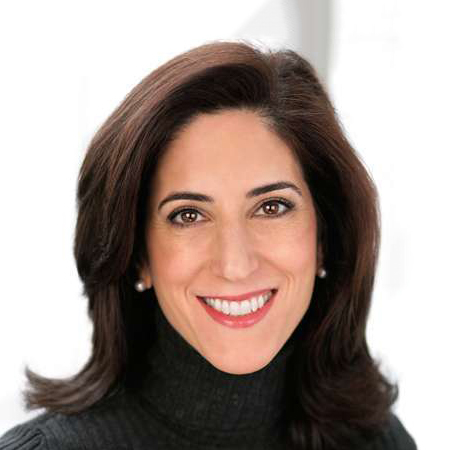
Rana Foroohar
Financial Times Columnist and Global Economic Analyst
– Moderator –
Global Business Columnist at The Financial Times and Global Economic Analyst at CNN Rana Foroohar covers the intersection of business, economics, politics, and foreign affairs. Foroohar frequently profiles movers and shakers in finance and business, including Warren Buffett, Bill Gross, Howard Shultz, Mary Barra, and Carl Icahn. Her upcoming book, Don’t Be Evil: How Big Tech Betrayed Its Founding Principles — And All Of Us, will be released in November 2019.
A sought-after commentator for her high-level yet accessible analysis, Foroohar speaks on the shifts occurring in globalization, the political economy, and the digital economy. She draws from her weekly column to offer real-time analyses on emerging markets, women in the workplace, education, and the disruption of big tech. She has chaired panel discussions with world leaders, intellectuals, and economists at the World Economic Forum and elsewhere, including a Harvard Business School program on improving U.S. competitiveness.
With FT Editor Edward Luce, Foroohar writes the twice weekly newsletter “Swamp Notes,” which covers money and power in Trump’s America and the big themes driving politics, business, and markets. She recently appeared in the Frontline documentary, ‘Left Behind America’, about Dayton, Ohio’s struggle to recover in the post-recession economy.
The former Economics Columnist and Assistant Managing Editor for TIME, Foroohar has penned numerous cover stories and essays on China and the next global recession, Europe’s economic crisis, and what the rise of “localnomics” means for American business.
For 13 years Foroohar served as the deputy editor in charge of international business and economics for Newsweek and headed up coverage for the annual Davos special issue. She spent six years as Newsweek’s European correspondent based in London, covering business news throughout Europe and the Middle East.
Foroohar’s first book, Makers and Takers, was a finalist for the 2016 FT & McKinsey Business Book of the Year Award.
In 2019, Foroohar was awarded a SABEW award for her tech and policy coverage at the Financial Times. The recipient of awards and fellowships from institutions such as the Johns Hopkins School of International Affairs and the East West Center, Foroohar is a graduate of Barnard College, Columbia University, and a life member of the Council on Foreign Relations.

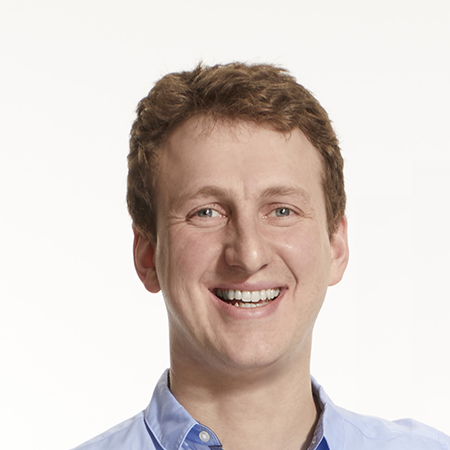
Dr. Alex Kogan
Former University of Cambridge professor who worked with Cambridge Analytica
– Speaker –
Dr. Alex Kogan is an academic specializing in big data and positive psychology. He is perhaps best known as the scientist at the heart of the Cambridge Analytica controversy who collected the Facebook data and build the personality models that became a focus of international scrutiny in 2018. In his academic career, Alex has published extensively on the biology of kindness, big data approaches to understanding social connections, and the ingredients of a meaningful life. He received his undergraduate degree at the University of California, Berkeley and a PhD from the University of Hong Kong. He served as an Assistant Professor at the University of Cambridge from 2012 to 2018, where he led the Cambridge Prosociality and Well-being lab. Alex also has experience in entrepreneurship, starting several tech companies.

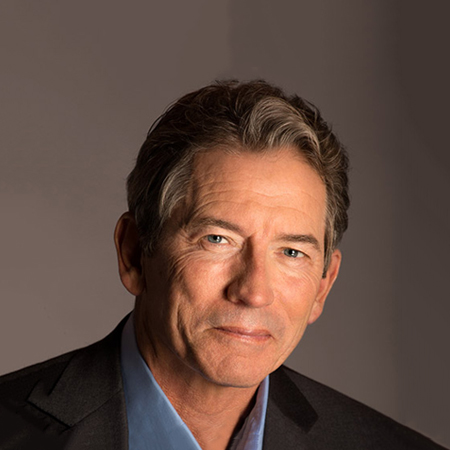
Thomas M. Siebel
Chairman and Chief Executive Officer, C3
– Speaker –
Mr. Siebel is the chairman and chief executive officer of C3. He is also the founder and chairman of the Thomas and Stacey Siebel Foundation. Mr. Siebel was the Chairman and Chief Executive Officer of Siebel Systems, which merged with Oracle Corporation in January 2006. Mr. Siebel is also Chairman of the Siebel Energy Institute, a global consortium for innovative and collaborative energy research for the public domain. Mr. Siebel is a member of the American Academy of Arts and Sciences and serves on the College of Engineering boards at the University of Illinois and the University of California, Berkeley. Mr. Siebel is a graduate of the University of Illinois at Urbana-Champaign, where he received a B.A. in history, an M.B.A, and an M.S. in computer science.

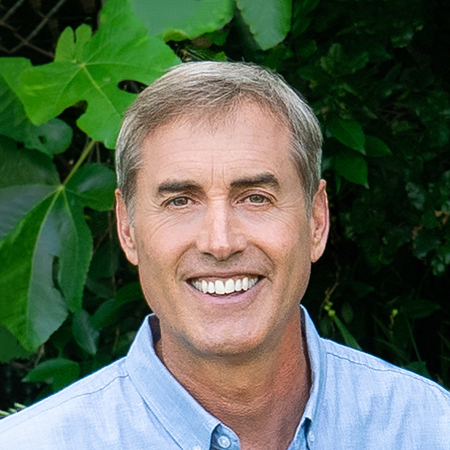
BJ
Fogg
Ph.D., Behavior Scientist
at Stanford University
– Speaker –
BJ Fogg is a behavior scientist at Stanford, where he directs the Behavior Design Lab. In his teaching role, he has created 14 new courses for Stanford, including these topics: peace technology, health habits, connecting people to nature, and reducing screen time.
BJ also teaches industry innovators how to create products & services that will increase people’s health, financial wellbeing, productivity, and happiness.
Starting in the early 1994, BJ ran experiments to investigate how computers might influence human behavior. He later named this domain “persuasive technology” and published a book on this topic. At an FTC hearing in 2006, he predicted potential downsides of persuasive technology and urged policymakers to take action.
In 2010 BJ’s research shifted away from persuasive technology as his lab team became interested in a new way of mapping out human behavior. Building on his Behavior Model, he created a method of habit formation called Tiny Habits. Over the span of seven years BJ has personally coached over 40,000 people in creating habits.
Fortune Magazine named BJ a “New Guru You Should Know” for his insights about the future of mobile technology and social networks. Find out more at BJFogg.com, or see TinyHabits.com to learn about his forthcoming book, Tiny Habits: The Small Changes that Change Everything.


Karl
Rove
Former Deputy Chief of Staff to
President George W. Bush
– Speaker –
Karl Rove, an iconic political strategist and one of the most sought-after political pundits of our time, is best known for his provocative and robust knowledge of the major political issues of the day.
Rove served as Senior Advisor to President George W. Bush from 2000–2007 and Deputy Chief of Staff from 2004–2007. At the White House he oversaw the Offices of Strategic Initiatives, Political Affairs, Public Liaison, and Intergovernmental Affairs and was Deputy Chief of Staff for Policy, coordinating the White House policy-making process.
Rove has been described by respected author and columnist Michael Barone in U.S. News & World Report as “…unique…no Presidential appointee has ever had such a strong influence on politics and policy, and none is likely to do so again anytime soon.” Washington Post columnist David Broder has called Rove a master political strategist whose “game has always been long term…and he plays it with an intensity and attention to detail that few can match.” Fred Barnes, executive editor of The Weekly Standard, has called him “the greatest political mind of his generation and probably of any generation… He knows history, understands the moods of the public, and is a visionary on matters of public policy.”
Mr. Rove writes a weekly op-ed for the Wall Street Journal, appears frequently on the Fox News Channel, and is the author of the New York Times best seller, Courage and Consequence. His latest book is The Triumph of William McKinley: Why the Election of 1886 Still Matters.
A Colorado native, he attended the University of Utah, the University of Maryland-College Park, George Mason University, and the University of Texas at Austin.

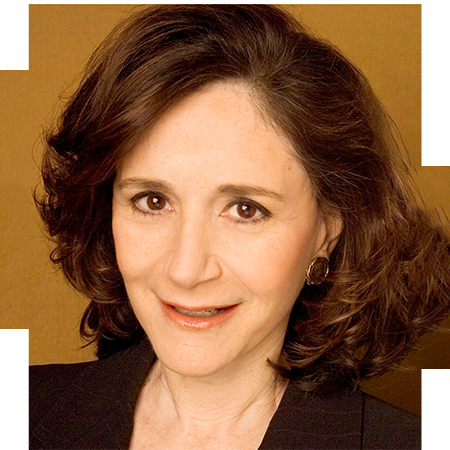
Sherry
Turkle
Founding Director, MIT Initiative on Technology and Self
– Speaker –
Sherry Turkle, Professor, author, consultant and researcher, Sherry Turkle is the Abby Rockefeller Mauzé Professor of the Social Studies of Science and Technology in the Program in Science, Technology and Society at MIT, as well as the founding director of Initiative on Technology and Self, a center of research and reflection on the evolving connections between people and artifacts. Referred to by many as the “Margaret Mead of digital culture,” Professor Turkle has investigated the intersection of digital technology and human relationships from the early days of personal computers to our current world of robotics, artificial intelligence, social networking and mobile connectivity. Her New York Times best-seller, “Reclaiming Conversation: The Power of Talk in the Digital Age” (Penguin Press, October 2015), focuses on the importance of conversation in digital cultures, including business and the professions. Her previous book, “Alone Together: Why We Expect More from Technology and Less from Each Other” (Basic Books, 2011), was a featured talk at TED2012, describing technology’s influence on relationships between friends, lovers, parents and children, and new instabilities in how we understand privacy and community, intimacy and solitude. Professor Turkle has been profiled in such publications as The New York Times, Scientific American, and WIRED. She is a featured media commentator on the effects of technology for CNN, NBC, ABC and NPR, including appearances on such programs as Nightline, 20/20 and The Colbert Report, and has been named a Harvard Centennial Medalist and a Ms. Magazine Woman of the Year. In 2014 she was named to American Academy of Arts and Sciences. Professor Turkle received a joint doctorate in sociology and personality psychology from Harvard University, and is a licensed clinical psychologist.

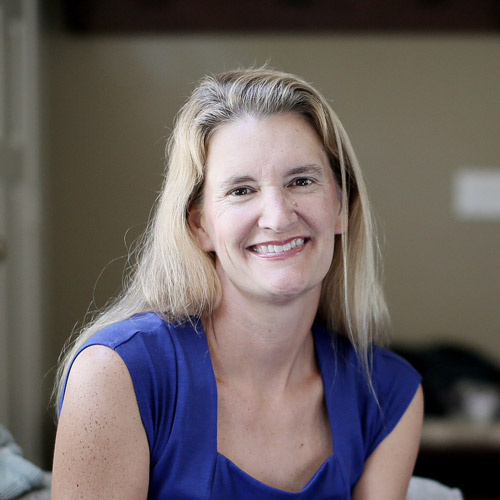
Jean M. Twenge, Ph.D.
Ph.D., Author, iGen
– Speaker –
Jean M. Twenge, Professor of Psychology at San Diego State University, is the author of more than 140 scientific publications and the books iGen: Why Today’s Super-Connected Kids Are Growing Up Less Rebellious, More Tolerant, Less Happy–and Completely Unprepared for Adulthood, Generation Me: Why Today’s Young Americans Are More Confident, Assertive, Entitled — and More Miserable Than Ever Before and The Narcissism Epidemic: Living in the Age of Entitlement (co-authored with W. Keith Campbell). Dr. Twenge frequently gives talks and seminars on teaching and working with today’s young generation based on a dataset of 11 million young people. Her audiences have included college faculty and staff, high school teachers, military personnel, camp directors, and corporate executives. Her research has been covered in Time, Newsweek, The New York Times, USA Today, U.S. News and World Report, and The Washington Post, and she has been featured on Today, Good Morning America, CBS This Morning, Fox and Friends, NBC Nightly News, Dateline NBC, and National Public Radio. She holds a BA and MA from the University of Chicago and a Ph.D. from the University of Michigan.

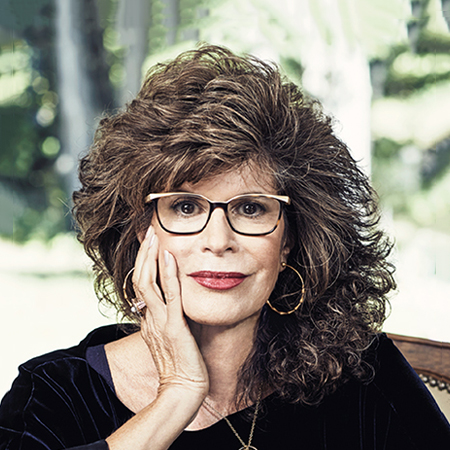
Shoshana Zuboff
Author, The Age of Surveillance Capitalism
– Speaker –
Shoshana Zuboff is the Charles Edward Wilson Professor emerita, Harvard Business School, where she joined the faculty in 1981 and became one of its first tenured women. From 2014- 2015 she was also a Faculty Associate at the Berkman Klein Center for Internet and Society at Harvard Law School. Her career has been devoted to the study of the rise of the digital, its relationship to the history and future of capitalism, and the consequences for individuals and society. She earned her Ph.D. in social psychology from Harvard University and her B.A. in philosophy from the University of Chicago. She is the author of In the Age of the Smart Machine, which was featured on the cover of the New York Times Book Review, and The Support Economy, which was selected by strategy+business magazine as one of the top ten business books of 2003 and as the “number one idea” in Businessweek’s special issue on “Twenty Five Ideas for a Changing World.” She is a frequent contributor to the Frankfurt Allgemeine Zeitung and has been a featured columnist for Businessweek.com andFast Company. Her scholarly article, “Big Other: Surveillance Capitalism and the Prospects of an Information Civilization,” won the International Conference on Information Systems Senior Scholars’ 2016 Best Paper Award.In 2006, strategy+business magazine described Shoshana in a profile as “a maverick management guru…one of the sharpest most unorthodox thinkers today” and in a later issue named her among the eleven most original business thinkers in the world. She has appeared on NBC-TV’s “The Today Show”, NPR’s “Morning Edition”, Marketplace, and the BBC.

SCHEDULE
| 6:30pm – 9:30pm | Welcome reception, dinner, and fireside chat with Rana Foroohar and Dr. Alex Kogan | The Art Institute of Chicago |
| 8:30am - 4:00pm | Panel discussions | Assembly Hall, International House, University of Chicago |
| 12:00pm - 1:00pm | Luncheon | Winter Garden, Booth School of Business, University of Chicago |
| 7:00pm - 11:00pm | Gala | Field Museum |
| 8:00am – 12:00pm | Breakfast, followed by breakout sessions, lunch and recommendation presentations | The Cloister Club, Ida Noyes Hall, University of Chicago |
VENUES
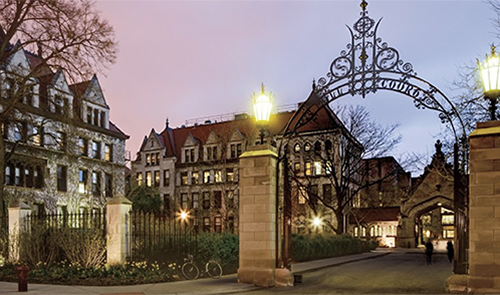
University of Chicago
5801 S Ellis Ave
Chicago, IL 60637
The University of Chicago is a private research university in Chicago, Illinois. Founded in 1890, the school is located on a 217-acre campus in Chicago’s Hyde Park neighborhood, near Lake Michigan. The University of Chicago holds top-ten positions in various national and international rankings.

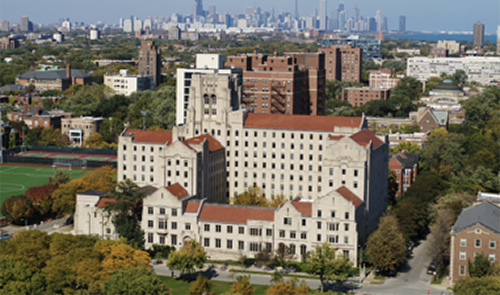
Assembly Hall, International House
1414 E 59th St
Chicago, IL 60637
The beautiful cathedral windows, colorful display of international flags, and rich hues of oak paneling give the spacious Assembly Hall in the International House optimum elegance and grandeur. The mission of International House is to enable students and scholars from around the world to live and learn together in a diverse residential community that builds lifelong qualities of leadership, respect, and friendship.

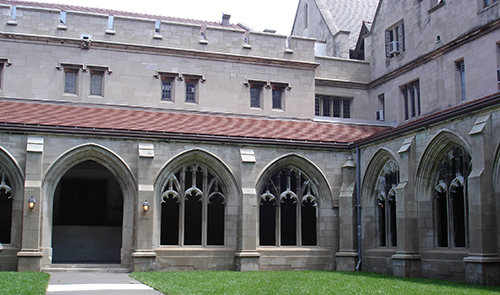
Ida Noyes Hall
1212 E 59th St
Chicago, IL 60637
Ida Noyes Hall is a three-story, Neo-Gothic building located on the University of Chicago campus in Chicago, Illinois. Designed by Shepley, Rutan and Coolidge and completed in 1916, the building features fireplaces, a limestone exterior, intricately plastered ceilings, and elaborate wood paneling.

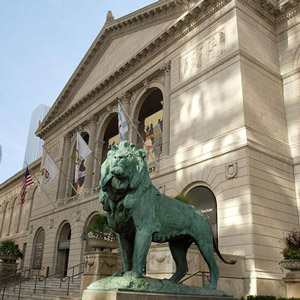
The Art Institute of Chicago
111 S Michigan Ave
Chicago, IL 60603
The Art Institute of Chicago, founded in 1879 and located in Chicago’s Grant Park, is one of the oldest and largest art museums in the United States. Recognized for its curatorial efforts and popularity among visitors, the museum hosts approximately 1.5 million people annually.

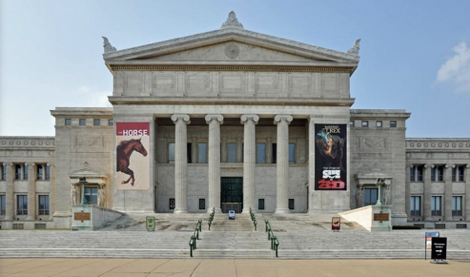
Field Museum
1400 S Lake Shore Dr
Chicago, IL 60605
The Field Museum fuels a journey of discovery across time to enable solutions for a brighter future rich in nature and culture.

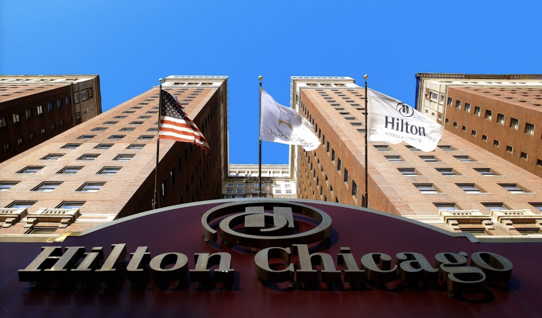
Hilton Chicago
720 S Michigan Ave
Chicago, IL 60605
The Hilton Chicago is a centrally-located luxury hotel in Chicago, Illinois. The hotel is a Chicago landmark that overlooks Grant Park, Lake Michigan, and the Museum Campus. It is the third-largest hotel in Chicago by number of guest rooms; however, it has the largest total meeting and event space of any Chicago hotel. Every sitting president of the United States has been housed in the hotel before leaving office since its opening in 1927.


Winter Garden, Booth School of Business
5807 S Woodlawn Ave
Chicago, IL 60637
The award-winning Charles M. Harper Center is a 415,000-square-foot, five-story graduate academic facility located on the University’s main Hyde Park campus. The building is composed of a base building with five above-grade levels and two below-grade levels, and a glass-enclosed winter garden. The architectural design, marked by the building’s horizontal massing and cantilevered exterior walls, reference Frank Lloyd Wright’s Prairie style of the neighboring Robie House. The resulting cantilevers range from three feet to 42 feet and required more than 600 moment connections. A signature architectural element is the 10,000-square-foot winter garden that is framed with structural steel and clad entirely with glass. It soars 83 feet at its apex, with the roof supported by four main columns.

CONTACT
For more information please contact SSF@siebel.org
Follow the conference on Twitter with #SiebelSocialConf
SIEBEL SCHOLARS FOUNDATION
Siebel Scholars Foundation
The Siebel Scholars program was established by the Thomas and Stacey Siebel Foundation in 2000 to recognize the most talented students at the world’s leading graduate schools of business, computer science, bioengineering, and energy science. Each year, more than 90 graduate students at the top of their class are selected during their final year of studies based on outstanding academic performance and leadership to receive a $35,000 award toward their final year of studies. Today, our active community of over 1,400 Siebel Scholars serves as advisors to the Siebel Foundation and works collaboratively to find solutions to society’s most pressing problems.
Siebel Scholars Foundation 1300 Seaport Blvd, Suite 400, Redwood City, CA 94063
© Siebel Scholars Foundation Test
